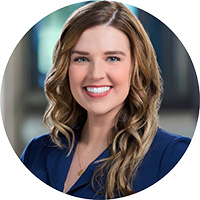Fun Money Facts: Can You Pass This Money & Budget Management Quiz?
Pop Quiz!
1. Which is considered a fixed expense?
- a.) Car payment
- b.) Utility bill
- c.) Credit card payment
2. Which is considered a type of revolving credit?
- a.) A car loan
- b.) A credit card
- c.) A mortgage
3. How many months' worth of income do experts agree you should have in emergency savings?
- a.) Three to six months
- b.) One month
- c.) Eighteen months
4. What is the difference between simple and compound interest?
- a.) Simple interest is calculated only on the principal amount of a loan.Compound interest is calculated on the principal amount and also on the accumulated interest of previous periods - and is therefore referred to as "interest on interest."
- b.) Compound interest is calculated only on the principal amount of a loan. Simple interest is calculated on the principal amount and also on the accumulated interest of previous periods - and is therefore referred to as "interest on interest."
- c.) They are calculated the same way and the terms can be used interchangeably.
5. Which documents should be retained in your financial records?
- a.) College degree
- b.) Banking statements
- c.) Coupons
6. What do experts agree your MINIMUM savings goal should be?
- a.) 15% of monthly income
- b.) 2% of monthly income
- c.) 10% of monthly income
7. How is a credit union different from a bank?
- a.) Credit unions are not-for-profits; banks are for profit
- b.) Credit unions are member-owned; banks are owned by stockholders
- c.) Both
8. What's the most you should charge on a credit card?
- a.) 50% of the card's limit
- b.) 30% of the card's limit
- c.) 10% of the card's limit
9. What does budgeting help you to do?
- a.) Manage how you save your money
- b.) Manage how you spend your money
- c.) Both
10. What is the fastest growing crime in America?
- a.) Bank robberies
- b.) Identity theft
- c.) The production of fake currency
-$$$-
Answers:
1.) A | Car Payment: A fixed expense is one that remains consistent from month to month. Car payments, mortgage payments, student loan payments, rent, and subscription costs are just a few examples. Variable expenses, on the other hand, can vary month to month. These include, but aren't limited to, groceries, utilities, entertainment, and so on. | Learn more.
2.) B | Credit Card: Revolving credit is the type of credit that is renewed after paying it off. So, you've got a credit card with a $1,000 limit and can go on charging and paying off, charging and paying off, forever. There is never an end date set at which you'll pay it off. Installment credit - including the likes of student loans, mortgages, car loans - is borrowed money that you pay back over time - and those payments will eventually come to an end, where you will have paid it off. It is important to have a mix of these two types of credit to build a strong credit score. | Learn more.
3.) A | 3 to 6 Months: While any amount of money stashed away as an emergency savings is a good start, most financial advisors recommend having 3 to 6 months' worth of income built up in the event that job loss, a medical emergency, or any other kind of unexpected (and costly!) situation arises. | Learn more.
4.) A | Simple interest is calculated only on the principal amount of a loan.Compound interest is calculated on the principal amount and also on the accumulated interest of previous periods - and is therefore referred to as "interest on interest." You'll come across simple, compound, and unearned interest when dealing with loans, lines of credit, investments, and savings - and it's important to understand how each works. | Learn more.
5.) B | Banking Statements: Having a specific and organized place for all of your financial documents is key to staying on top of your money matters. Hanging onto your college degree and coupons is just as important - but give them their own space and ensure that your financial house isn't getting cluttered with non-financial records. | Learn more.
6.) C | 10% of Monthly Income: It's okay to strive to save more than 10% of your monthly income, but experts agree that 10% is a realistic and comfortable goal. Seem impossible? Start small. Try putting 2% of your monthly income into savings to start, then every six months, up it by one percent until you reach 10%. Also note that you can spread your savings out into various accounts - place some into your regular savings, some into your retirement fund, some into emergency savings, and some into your child's 529 savings plan. | Learn more.
7.) C | Both: Credit unions are not-for-profit and member-owned. That means anyone who has a relationship (an account, loan, line of credit) with a credit union owns a part of the credit union. The money going into and out of a credit union, then, stays in, and benefits, the local community and the membership. As a result, credit unions are able to offer better rates and fees, higher dividends on savings, free or low-cost products and services, and perks like scholarships, community donations, and more. | Learn more.
8.) B | 30%: Just because you're approved for a credit card limit of $1,500 doesn't mean that you should spend away and charge $1,500 on a regular basis. Experts agree that consistently charging of 30% of the card's limit or less (on a $1,500 card that would mean charging no more than $450 before paying it off) will keep cardholders in a safe space - able to pay it down before building up out-of-hand debt and keeping their credit score in check. | Learn more.
9.) C | Both: Having a budget in place allows you to manage both spending your money wisely and, as a result, saving more of it over time. It can take some time to master the art of budgeting. It's normal for most people to rework their budget several times before finding what works best for them and their family. There are plenty of resources available to help you stay on top of your finances and become a budgeting pro. | Learn more.
10.) B | Identity Theft: It's hard to watch the news or read the morning paper these days without some mention of a data breach or fraud attempts - both locally and worldwide. Identity thieves can use your personal information (and they only need a small bit of personal information!) to wreak havoc on your life, and sometimes you might not even be aware of it. They can charge your credit cards, take out loans in your name, drain your accounts, apply for jobs in your name, and even use your name if they're booked in jail. Make sure you take the proper steps to prevent identity theft and keep an eye on your credit report to ensure there is no unauthorized activity happening to your accounts. | Learn more.

